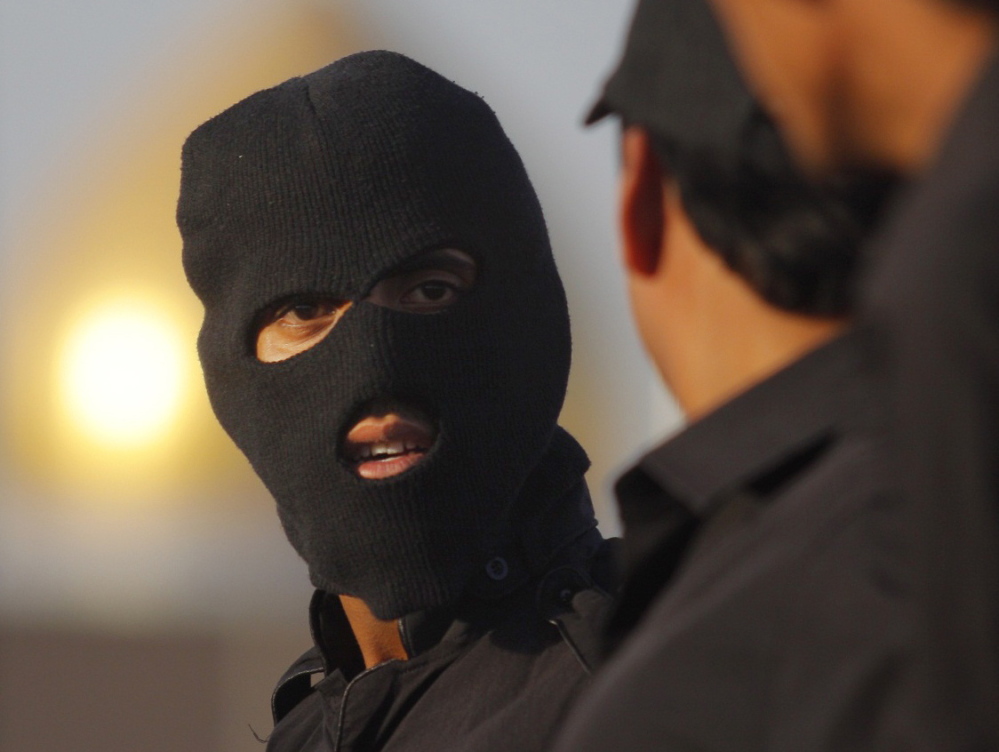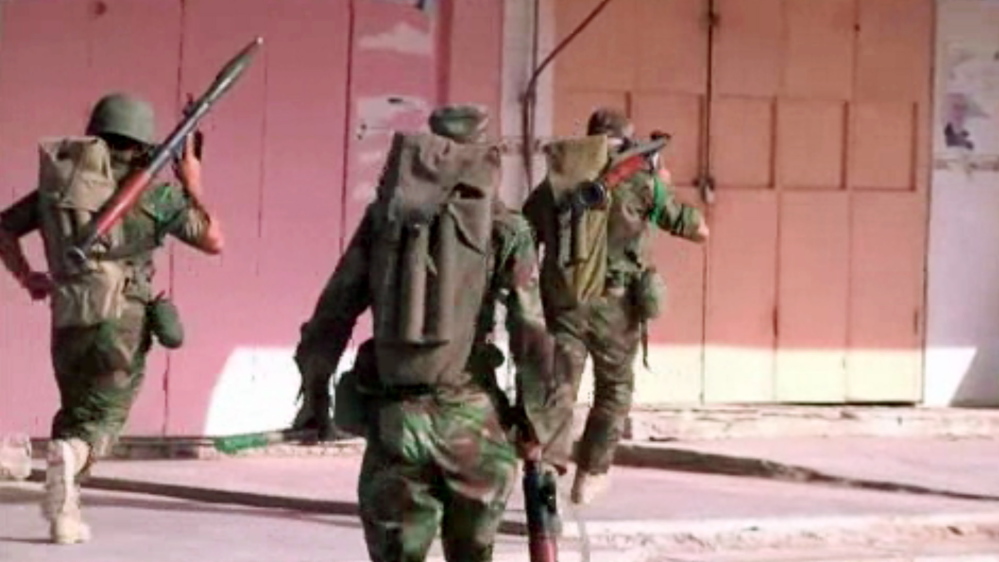BAGHDAD — Sunni extremists on Wednesday battled security forces for control of Iraq’s largest oil refinery, which provides Iraq with more than a quarter of its domestically produced fuel and could help fund the militants’ rampage across the country.
The loss of the refinery would mark another strategic blow to Prime Minister Nouri al-Maliki, who is urging the United States to bomb the militants as they push toward Baghdad from the country’s north.
Meanwhile, the Obama administration signaled its reluctance Wednesday to launch airstrikes in Iraq or intervene militarily in support of its government, telling Congress that a bombing campaign would be fraught with complications and that Iraq’s political divisions needed to be addressed first. Senior lawmakers who met with President Barack Obama behind closed doors gave no indication afterward that military action was imminent.
And Iran’s president vowed that his country would intervene in the conflict if Sunni Muslim insurgents made good on their threat to desecrate Iraqi holy sites that draw thousands of Iranian Shiite pilgrims each year.
In a televised address on Wednesday, Maliki struck an upbeat tone on the security situation even as fighting raged at Baiji, saying volunteers who had answered a call from Iraq’s top Shiite cleric would form the core of the new security forces. The government hopes the recruits will help plug gaps in the army after mass desertions but also seeks outside assistance.
Perhaps in an attempt to satisfy the United States, Maliki’s speech lacked some of the religious rhetoric of previous addresses. But he attacked his political opponents for assisting countries in the region in a plot to break up the country.
The clashes at the Baiji refinery, 130 miles north of Baghdad, came after an agreement collapsed between workers and tribesmen affiliated with insurgents from Islamic State of Iraq and Syria (ISIS), according to state oil officials.
In Baghdad, military and security officials denied that the facility had fallen out of government hands. Gen. Qassim Atta, a military spokesman, said on Iraqiya television that the refinery was entirely under government control and that 40 insurgents had been killed as security forces repelled their advance Wednesday. Atta’s claims of government gains have conflicted with accounts from the ground in the past.
Senior U.S. lawmakers said Wednesday that Obama told them he was still reviewing his options for dealing with the conflict, but that he was primarily considering ways to bolster assistance for Iraq’s beleaguered security forces.
At the same time, some lawmakers said, Obama told them he would not seek Congress’ formal approval should he decide that military force is necessary – a sore point for several members of both parties. The president “indicated he didn’t feel he had any need for authority from us for steps he might take,” said Senate Minority Leader Mitch McConnell, R-Ky.
The White House said Obama reviewed the administration’s efforts “to strengthen the capacity of Iraq’s security forces” in their fight against Sunni Muslim insurgents who have seized several key cities and overwhelmed the Iraqi army.
In a statement, the White House added that Obama “pledged to continue consulting closely with Congress” but did not specify on what legal basis he might act if he did order the use of military force.
Earlier Wednesday, the Pentagon’s top leaders warned of the political and military risks of launching another bombing campaign in Iraq, saying that a rush to action could backfire if targets and goals were unclear.
Army Gen. Martin Dempsey, the chairman of the Joint Chiefs of Staff, said Iraq’s Shiite-dominated government has requested that Washington provide “air power.” Iraqi officials have said their army, which offered little resistance as it retreated from several northern cities last week, needs help from armed U.S. drones and fighter aircraft – something that Obama has so far declined to authorize.
Dempsey told a panel from the Senate Appropriations Committee that pinpointing targets in an air campaign would be difficult, especially because Sunni insurgents have melted into the local population.
“It’s not as easy as looking at an iPhone video of a convoy and then immediately striking,” he said.
The broader problem, he added, was that the government of Iraq, led by Maliki, a Shiite, had worsened Iraq’s sectarian divisions. U.S. officials, who originally paved the way for Maliki to take power, have since chastised him for alienating the country’s Sunnis and Kurds.
“There is very little that – that could have been done to overcome the degree to which the government of Iraq had failed its people,” Dempsey said. “This has not broken down entirely on sectarian lines, but it could.”
Some Republican lawmakers pushed the administration to act more decisively, warning of a risk of Iraq’s becoming a failed state dominated by al-Qaida sympathizers if the United States does not intervene.
“I want the American people to understand: There’s a lot at stake for us . . . if Iraq falls and Iran dominates the south and this group, ISIS, owns the Sunni territory all the way from Aleppo to Baghdad,” said Sen. Lindsey Graham, R-S.C. “That would create economic chaos in the region, which would affect us here at home.”
In response, Defense Secretary Chuck Hagel said Obama had not made a decision on airstrikes but urged caution.
“There has to be a reason for those,” Hagel said. “There has to be an objective. What does it do to move the effort down the road for a political solution?”
Hagel and Dempsey said U.S. intelligence analysts had forecast a growing threat from ISIS in Iraq but acknowledged that they were taken aback by how rapidly and easily the insurgents have been able to sweep aside Iraqi forces. Many of the Iraqi troops had been trained by the U.S. military – which invested $25 billion to rebuild the Iraqi army after the U.S.-led invasion of the country in 2003.
“I think we were surprised that the Iraqi divisions . . . just threw down their weapons,” Hagel said.
Estimates of the number of fighters aligned with ISIS vary greatly. Sen. Dianne Feinstein, D-Calif., a member of the Appropriations Committee, said that Iraqi diplomats have told her that ISIS has about 20,000 men.
A senior U.S. intelligence official put the number at “upwards of 10,000” men and said the number was growing.
Send questions/comments to the editors.




Success. Please wait for the page to reload. If the page does not reload within 5 seconds, please refresh the page.
Enter your email and password to access comments.
Hi, to comment on stories you must . This profile is in addition to your subscription and website login.
Already have a commenting profile? .
Invalid username/password.
Please check your email to confirm and complete your registration.
Only subscribers are eligible to post comments. Please subscribe or login first for digital access. Here’s why.
Use the form below to reset your password. When you've submitted your account email, we will send an email with a reset code.